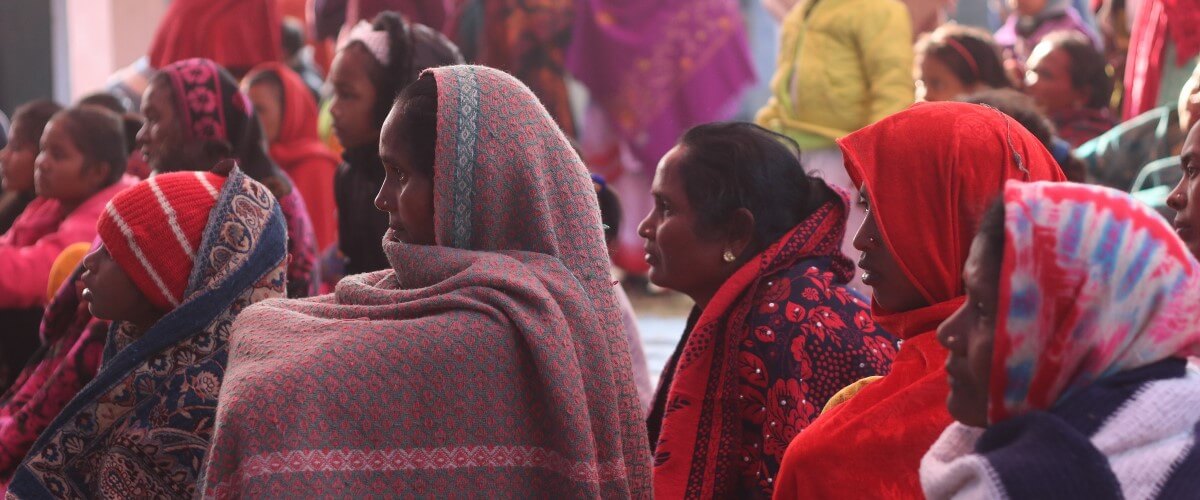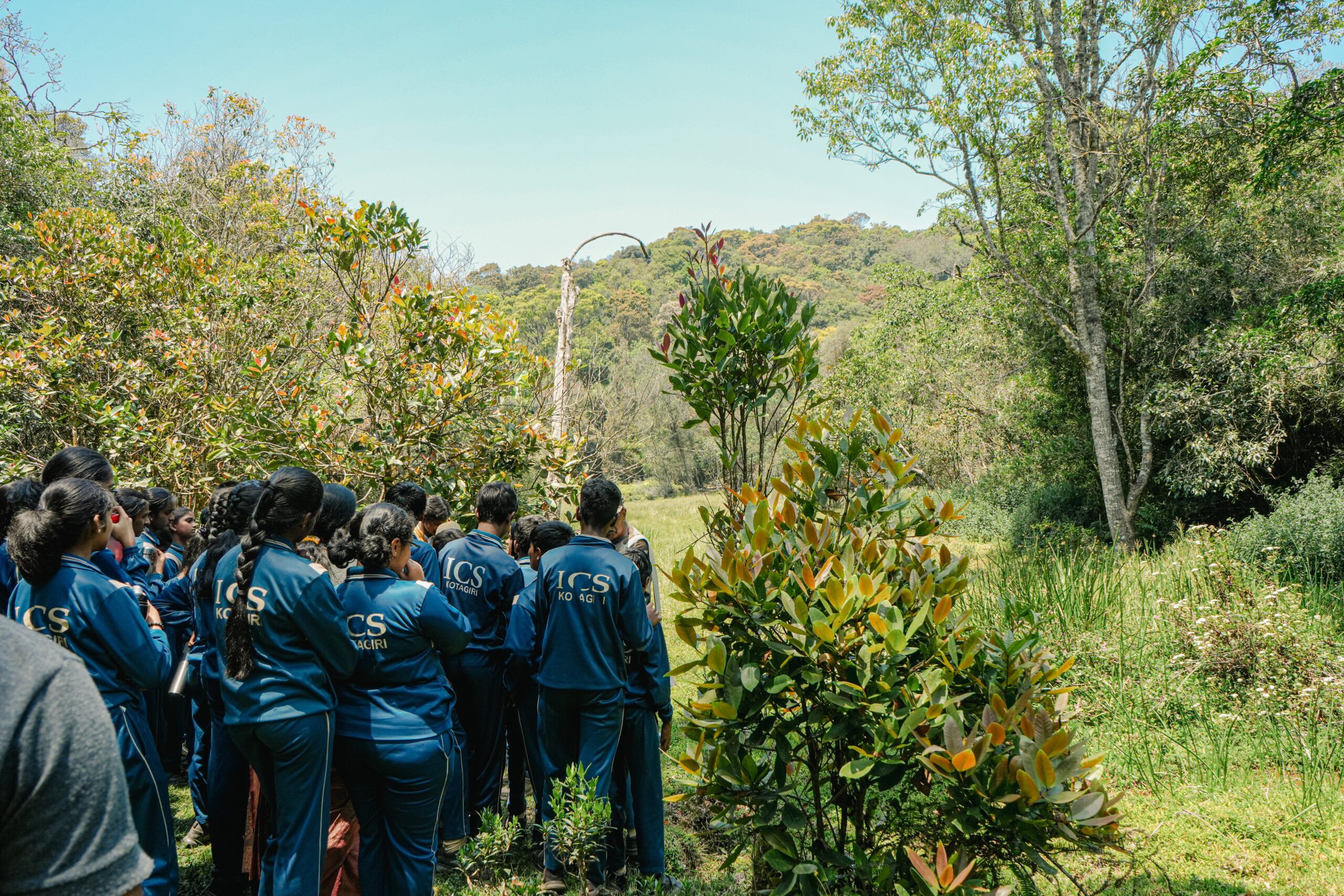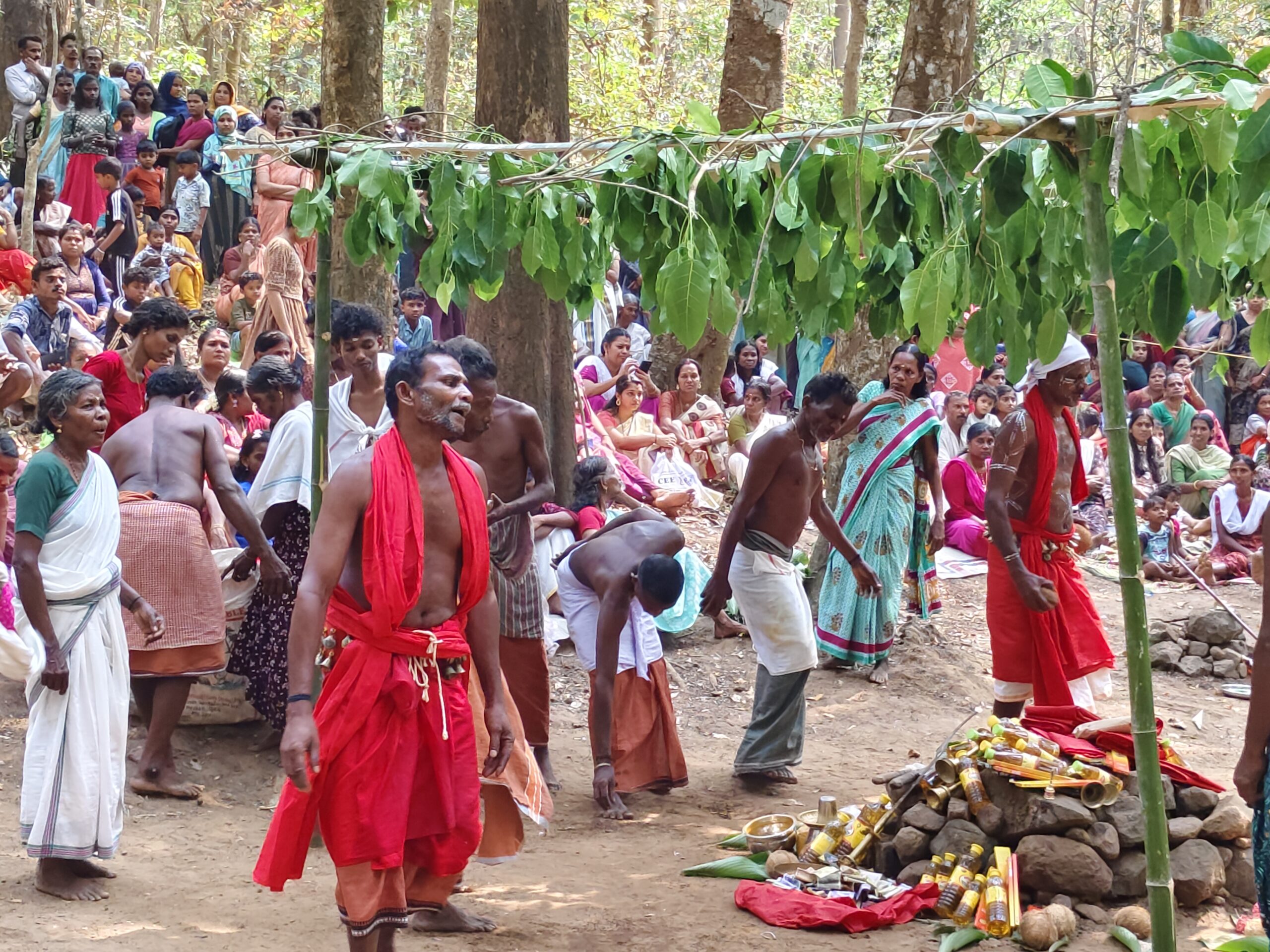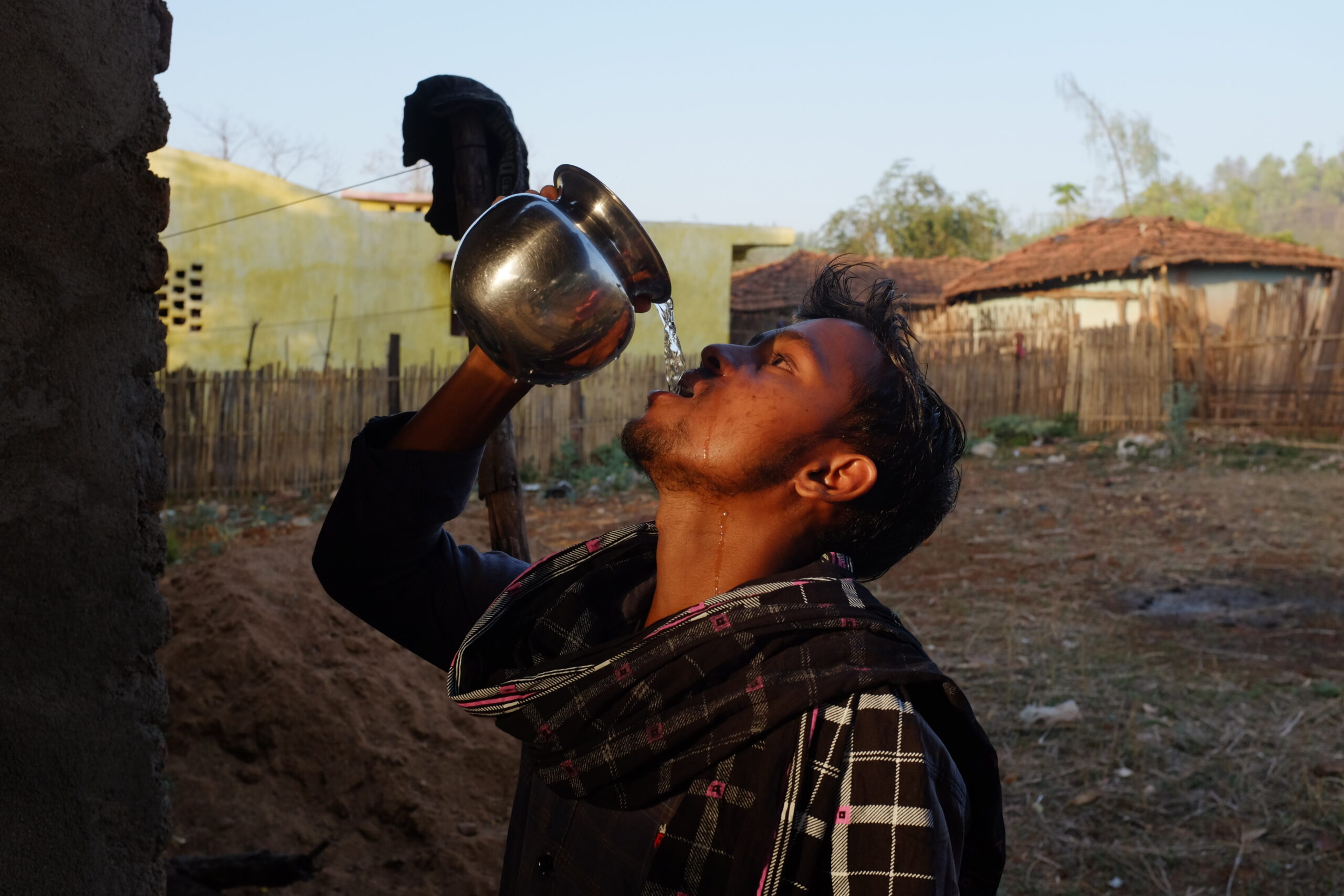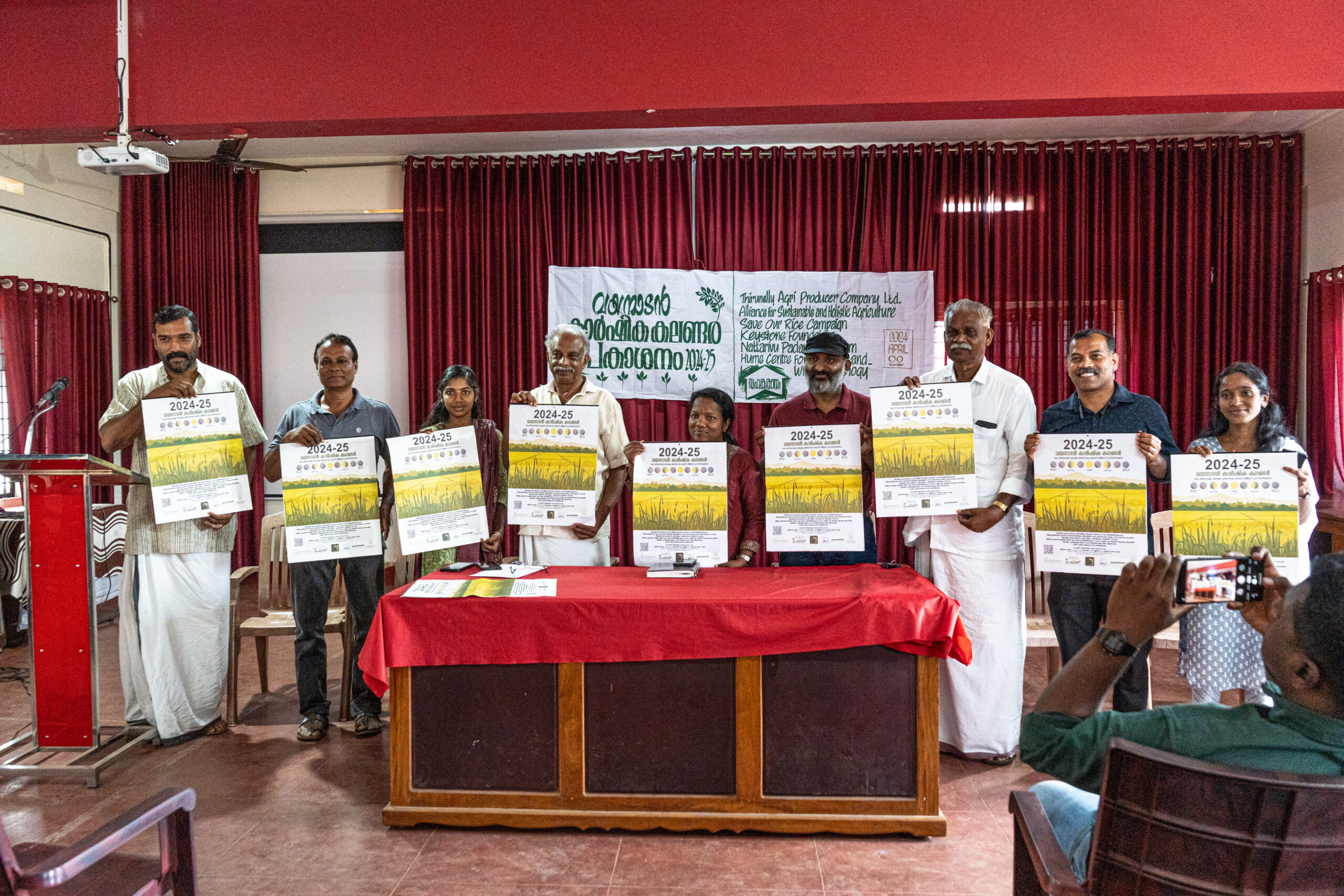November 16, 2022
By Rohan Mukerjee
Programme Coordinator – Networks & Alliances
November 15, 2022 marks the 147th birth anniversary of tribal freedom fighter Birsa Munda. Locals of Bada Sigdi village in Jharkhand’s East Singhbhum district celebrated the life and far-reaching impacts of this hero and his movement in the form of a Birsa Mela. The two-day mela (November 14 and 15) was jointly organised by Birsa Munda Adivasi Sanskritik Manch (BMASM), Adivasi Bhumij Samaj (ABS) and Paryavaran Chetna Kendra (PCK). BMASM was formed in 1973, and has since been organising an annual Birsa Mela. Unfortunately, the COVID-19 pandemic halted this tradition in 2020 and 2021. However, this only heightened people’s anticipation and brought them together in larger numbers this year.
Youth took over responsibility for organising the event this time. Some of the volunteers who helped make the mela a success were – Rakesh Sardar, Ajay Sardar, Hemanta Sardar, Ashok Sardar, Geeta, Sardarm Silwanti Sardar and the Gram Pradhan of Bada Sigdi, Bimla Sardar.
A capacity building workshop for women’s leadership was held on day two, involving 23 women, some coming from neighbouring areas like Sundar Nagar, Musabani and Saraikela-Kharswan. Salge Mardi began with a song and addressed the gathering. Being a social worker from Sundar Nagar, she talked about the vital role women play in leading communities, despite being sidelined. Even in history, the immense contribution of women to various movements and struggles receives limited attention. Despite this, she ended with a positive note on how things are changing and women are increasingly coming forward. She pointed out that reservation for women has helped empower them. Initially, despite the reservation for women in positions like Sarpanch (elected village head), it was the men, mostly husbands and brothers, who continued to control decision-making. Through the efforts of various organizations like PCK, women are claiming their voice and beginning to assert their rights. However, Salge also noted that the journey isn’t easy – a negative fallout of the expansion of women’s SHGs and collectives is that men are often staying away from such initiatives. She feels that there is a need for inclusive growth involving both men and women working towards the betterment of their communities.
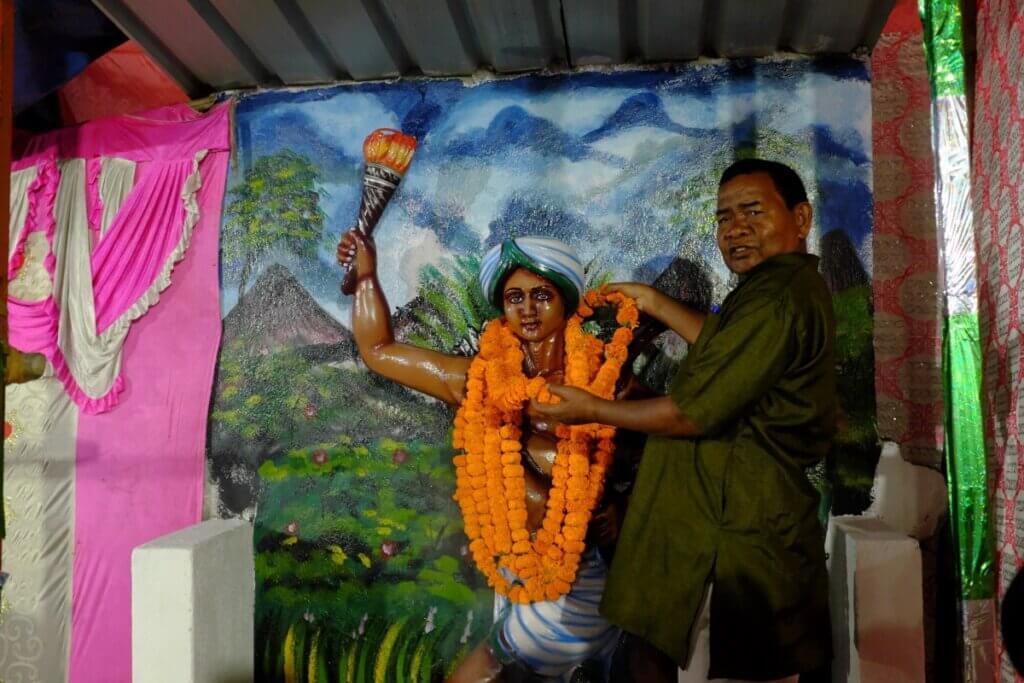
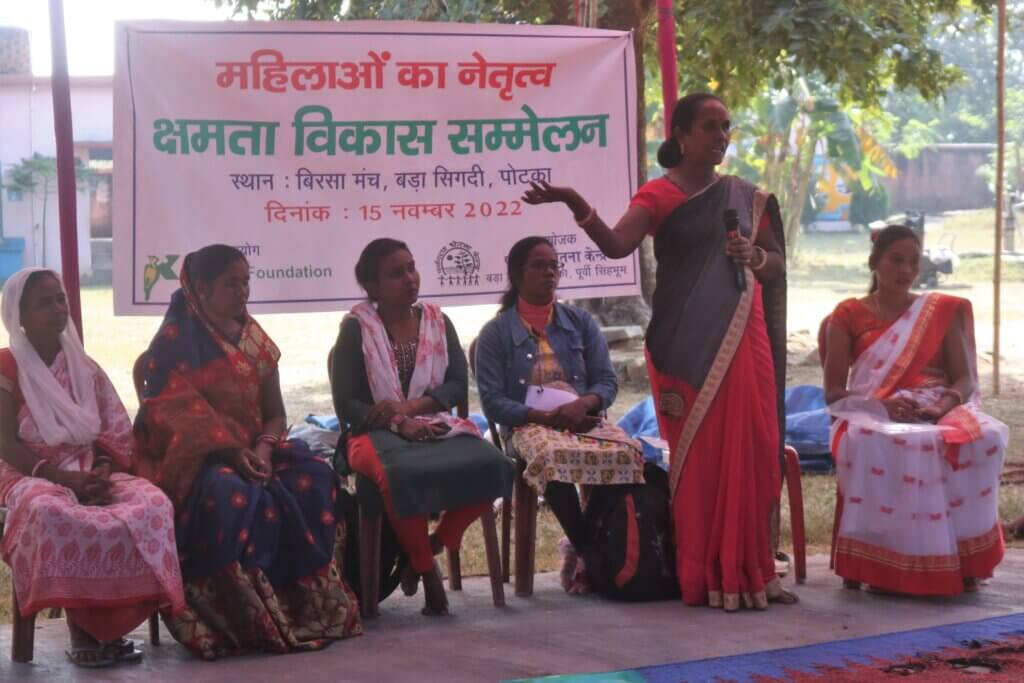
Mukta Munda from Hatnada village, Saraikela-Kharswan district shared her experiences of building savings as a member of a local women’s SHG, and shared her observations of women managing the Kocha Badi (homestead garden) and their important role in ensuring nutritional security for families by providing crops like maize, pulses, greens, vegetables, fruits and uncultivated foods. However, water scarcity is a major challenge in the maintenance of the Kocha Badi and women often have to cover long distances to access water for the crops in the summer months.
Basanti Sardar, who works towards the empowerment of women and tribal communities shared that she had failed her Matric exam before joining PCK but while working for women and the community she was empowered to resume her academics and is proud to share that she not only completed her Matric but has subsequently completed her postgraduate degree. She finds it heartening that in various movements and campaigns, it is women who are increasingly coming forward to fight for the rights of their communities and the environment. She emphasised the need for exchanges on knowledge and experiences between women from different areas to strengthen their movements. Initially, she was hesitant about raising her voice, but since working with PCK, she can now address gatherings of thousands of people.
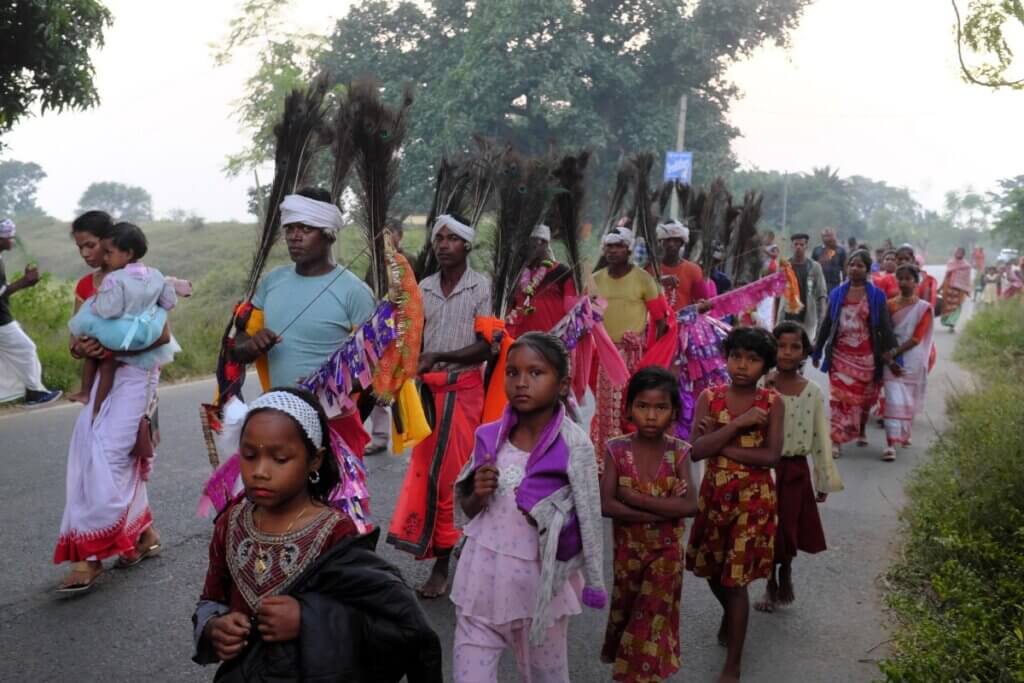
Gauri Sardar who leads a women’s SHG shared how they are saving money and exploring strategies to enhance their livelihoods – including the cultivation of vegetables. She emphasised the need for promoting gender equality among Gram Sabhas and encouraging the participation of women. She shared examples of increased participation of women in various roles like Angan Wadi Sewika, ASHA workers and in Wards and Panchayats. The event ended with the women coming together for a song.
The afternoon was filled with activities and games for the youth. This included balloon bursting and games to keep traditional skills alive like making Pual ki Rassi (Rope from paddy straw) and Bethna (Pot holder / stand out of paddy straw). A general knowledge quiz focusing on Jharkhand and Adivasi issues was also held. Nine groups from different villages assembled to put on traditional and cultural performances. As the sun set, the participants paid their respects to a statue of Birsa Munda and set out for a rally to seek blessings of the Sacred Stones of the Bhumij community which pay respect to ancestors who have passed on at the end of Bada Sigdi village. After returning the dance and cultural performances commenced. These performances included –
- Ho Nritya by Surendra Biruli’s group from Barkundia, Chaibasa Block, West Singbhum District.
- Bhuan Naach by the group from Hatnada, Saraikela-Kharswan District. They used traditional instruments made from Lauki (Bottle Gourd).
- Langre Naach by the from Media, Musabani Block, East Singbhum District.
- Phirkang Naach by a group from Chakri whose act included a performance on the life and struggle of Birsa Munda.
- Karam Naach performed separately by groups from Dokarsa, Gitildih, Rimrah and Bada Sigdi villages, Potka Block, East Singbhum.
- Kheriya Sabar Naach by the Sabar community from Hitbasa village, Potka Block, East Singbhum District.
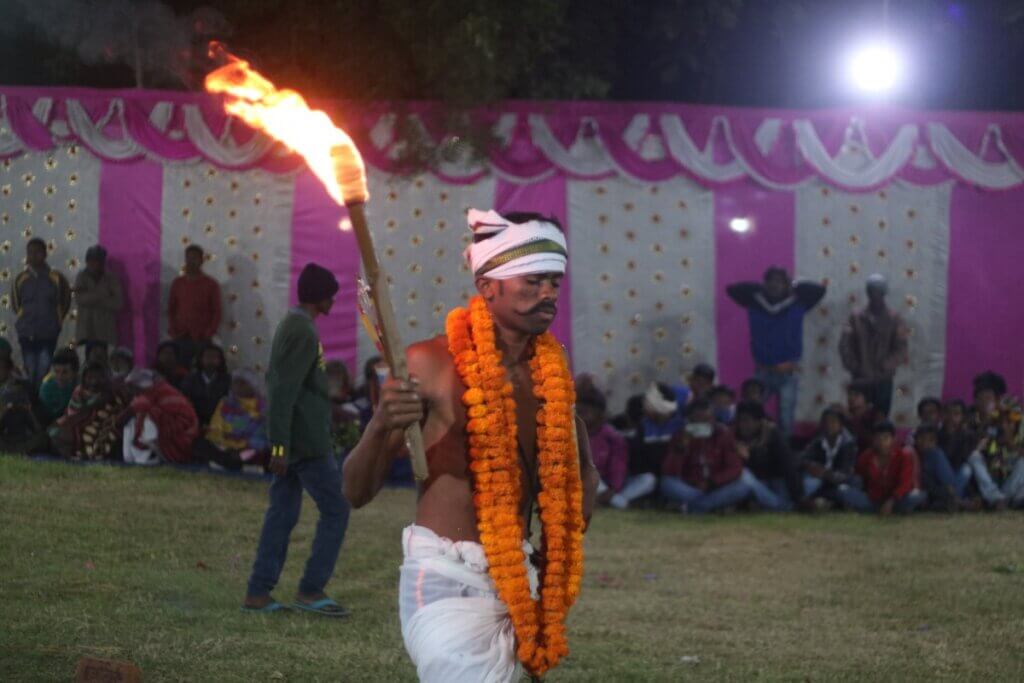
The traditional dance and cultural performances went on well into the night. Women, children and men in large numbers braved the cold with woolen wear, shawls and blankets to experience what they had been missing for two years. There was also a drama competition involving several local groups who had been working on their scripts and performances for a considerable time prior to the Birsa Mela. All the plays were on issues of concern for the local communities and the groups who participated, including –
- A group from Beldih village who performed a play in Santali on family tension and conflict due to a second marriage.
- A team from Chuthku village whose Bhumij play focussed on the ills of alcohol and the threats to community unity when contractors and middlemen bribe villagers with alcohol.
- A group from Ulnasai villages whose play highlighted how the youth focus on football which unfortunately has become an excuse to drink with player drinking to celebrate victory and also drinking to drown their sorrows when they lose. This negatively impacts their families and along with mobile phone addiction is leading to the youth ignoring their families and not fulfilling their responsibilities.
- The Phuljhari group performed a Santali play on social issues focussing on alienation and manipulation of Adivasi people by outsiders.
- The Ragrasai group put on a heartening performance in Bhumij depicting how a Company and its representatives were tempting villagers to get their way and even resorting to murder and levelling false charges and false cases against those opposing them. But the play ended on a positive note with villagers coming together against all odds to triumph and successfully safeguard their rights.
The Mela ended with a prize distribution ceremony and Sidheswar Sardar addressing the gathering to reiterate the objectives of the event and the need to stay true to the principles of their legendry hero Birsa Munda.

